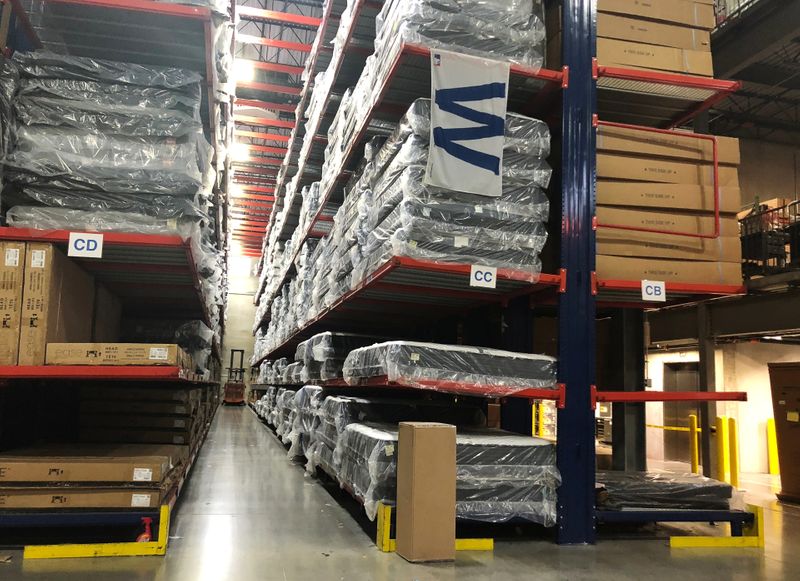WASHINGTON (Reuters) - U.S. business inventories fell in February amid a decline in imports and further decreases are likely as the novel coronavirus outbreak severely disrupts global supply chains and the flow of goods.
The Commerce Department said on Wednesday that business inventories decreased 0.4% in February after falling 0.3% in January. Inventories are a key component of gross domestic product. February's decline in business stocks was in line with economists' expectations.
Retail inventories decreased 0.3% in February as estimated in an advance report published last month. That followed a 0.1% dip in January. Motor vehicle inventories dropped 0.8% in February rather than tumbling 0.9% as previously reported. Retail inventories excluding autos, which go into the calculation of GDP, were unchanged as reported last month.
Goods imports dropped to near a 2-1/2-year low in February, with merchandise from China the lowest since 2009, the government reported last month. The decline in imports could result in a drawing down of inventory, offsetting any contribution to GDP from a smaller trade deficit.
The pace of inventory accumulation accelerated from the third quarter of 2018 through the first quarter of 2019, before shifting lower from the second through the fourth quarters.
Inventory investment sliced off almost a full percentage point from GDP growth in the fourth quarter. The economy grew at a 2.1% annualized rate in the October-December period, matching the third quarter's pace.
The economy is believed to have contracted sharply in the first-quarter as tough measures by states and local governments to control the spread of COVID-19, the respiratory illness caused by the coronavirus, brought the country to a sudden stop from mid-March.
Wholesale inventories dropped 0.7% in February, while stocks at manufacturers fell 0.3%.

Business sales fell 0.5% in February after rising 0.5% in the prior month. At February's sales pace, it would take 1.37 months for businesses to clear shelves, unchanged from January.